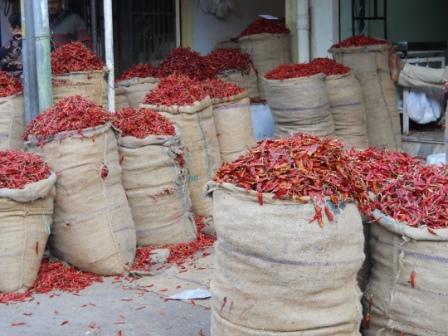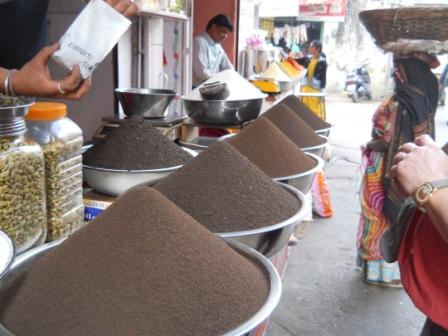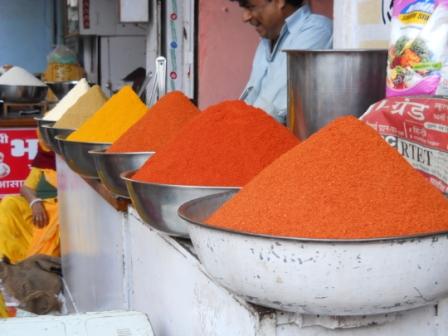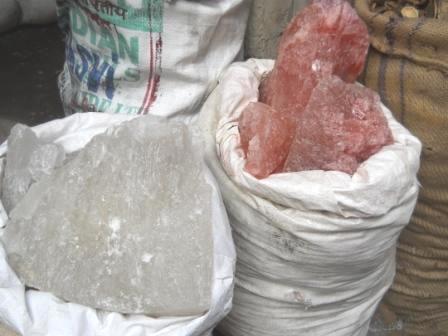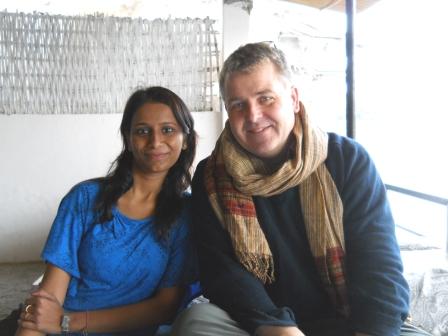Nasal Passage to India
Walking around India I think I’m much more aware of my sense of smell than anywhere else and I wonder whether we have downgraded confidence in our olfactory powers in preference to sight and hearing where other cultures are much more ready to trust their noses.
Of course there’s the stuff we’d rather not smell; cow and dog dung, motorbike and tuk tuk fumes, public latrines (i.e. dark corners of the street), drainage. These, however, are merely incidental, not deliberately developed, grown, burnt, place, or added to food, soap or perfumes for their specific aromas. A short time in any town and we are besieged by different scents from every side.
Before we arrive, incense has been burnt in our room giving a pleasant, sweet introduction to our new accommodation (and possibly expunging any nasally detected reminders of the last occupants). Temples burn it constantly and we get wafts coming from shoips and peoples homes as we pass their door.
Though we usually think of chillies as adding taste and heat to food, when we come across the chilli wholesale market our noses get it before we even see it. A tingle of course as the molecules hit us but also a real fruitiness.
People are very quick to push things towards our noses inviting us to smell the quality of their products. This happens with tea shops where bags of darleeling, assam and rose teas are offered for sniff test approval. Soap must be similarly appraised and we have smelt sandalwood, vanilla, jasmine, lavander and many more varieties.
And then there are the spice stalls and cooking classes where every different spice is offered for inhalation, the only way, seemingly, to be sure of its quality and authenticity.
Most are very pleasing; cinnamon, cardamom, coriander, nutmeg, would all sit happily in a bowl of pot pourri. Some popular spices, on the other hand, I have found to be particularly offensive. Asafoetida is taking some getting my head round. One whiff of this and I’m reeling back thinking there’s no way it’s going in my food. Usually the taste disappears once it’s cooked and it acts as a flavour enhancer and imparts leek or onion flavours, useful for those who don’t eat any of the onion or garlic family for religious reasons. All good I’m sure but I think it’s only real sticking power in recipes is its medicinal properties. Like many spices it carries a whole list of ailments it may be good for but its real impact is as an antibacterial and an antiflatulent. So a bit in a meat dish will lesson your chances of stomach upset and a bit in your lentil dish will bring about a decrease in the wind strength from gale force to moderate breeze. Happy days!
Another condiment I’d put in the horrid category is black salt. This naturally occuring salt is full of mineral deposits which give it colour from pink, through purple, to black and a very strong odour of sulphur. I tasted this in a mixture sprinkled over salad and believe me the aroma does not bear false witness to the taste. Apparently vegans believe it adds egg flavour to their food, which it does; unfortunately though its rotten egg.
Today I also want to mention some of the people we’ve met in Udaipur. It’s seems that when we get away from the main tourist areas people see us less as a target to pitch their wares at and more of a curiosity. We stopped for a cuppa at a chai place in the wholesale market and were treated like royalty. The shopkeeper gave us free pakora and we got talking to a man next to us. He was a sugar trader and sold 1000 sacks a day at 300 rupees each (£3). I imagine £3,000 per day is a pretty big turnover although his jacket looked like he’d inherited it from Spandau Ballet in the 80s. He told us he was singer so it may well be; and then sang me a song to prove it….. and he paid for our tea. Awesome.
At another stall we bought a sort of sweet puff pastry thing. The vendor was so taken aback he ran off, returning a minute later with two beakers of water for us. We didn’t think we could refuse his generosity so we drank it of course.
Moments later an old man stopped us in the street to ask us where we were from, what we did and how we liked India? He explained that although retired now he had been a doctor in traditional Indian medicine. Then he wandered off leaving us bemused and rather uplifted.
And this young woman just asked if she could have her photo taken with us for no reason which I can fathom.


